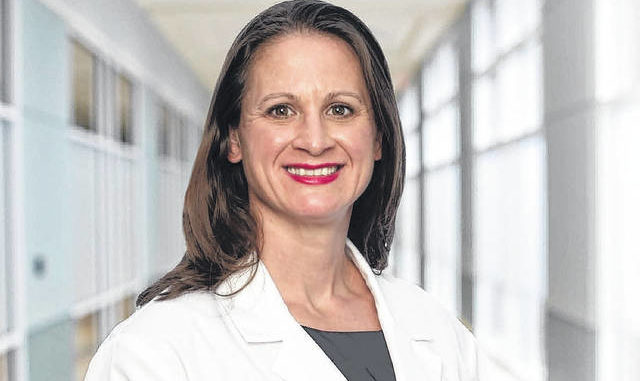
CHERAW, South Carolina – In recognition of National Breast Cancer Awareness Month, McLeod Health is raising awareness of breast cancer, the most common cancer among American women.
Breast cancer is a malignant tumor that grows in one or both of the breasts. Breast cancer usually develops in the ducts or lobules, also known as the milk-producing areas of the breast. Breast cancer usually has no symptoms when the tumor is small and most treatable.
Therefore, it is important to follow screening guidelines for early detection, before symptoms are noticeable.
Some warning signs of breast cancer include:
— Painless new lump in the breast or underarm (armpit)
— Thickening or swelling of part of the breast
— Irritation or dimpling of breast skin
— Redness or flaky skin in the nipple area or the breast
— Pulling in of the nipple or pain in the nipple area
— Nipple discharge other than breast milk, including blood
— Any change in the size or the shape of the breast.
Keep in mind that some of these warning signs can happen with other conditions that are not cancer.
Who develops breast cancer?
According to the National Cancer Institute, a woman has a 1 in 8 lifetime risk of developing breast cancer. Breast cancer is the second leading cause of cancer death in women (after lung cancer). The American Cancer Society estimates 276,480 new cases of breast cancer this year.
It is also important to recognize that breast cancer can affect men as well. Breast cancer is about 100 times less common among men than among women. For men, the lifetime risk of developing breast cancer is about 1 in 1,000.
Screening
Breast cancer screening means checking a woman’s breasts for cancer before there are signs or symptoms of the disease. Three main tests are used to screen the breasts for cancer. Talk to your doctor about which tests are right for you, and when you should have them. Screening may include any or all of the following: mammogram, clinical breast exam by a health care provider and self-breast exam. Women should begin annual screening mammography at age 40 or earlier if at increased risk.
The American Cancer Society recommends that clinical breast examination should be a part of a health examination for women in their 20’s, 30’s and more preferably yearly beginning at age 40. For many women in the region, access to a screening mammogram has been improved by the McLeod Mobile Mammography Unit, which each week travels to businesses, industries and healthcare facilities.
The unit provides a convenient, comfortable, and private setting in which women can undergo a screening mammogram.
3D mammography
Breast cancer McLeod Health offers 3D Mammography at its Florence, Dillon, Cheraw, Manning and Seacoast locations as well as on the McLeod Mobile Mammography Unit. Revolutionizing how breast cancer is detected, 3D Mammography not only produces standard 2D views, but it also allows doctors to examine the breast tissue layer by layer.
This advanced technology offers our patients greater accuracy, earlier detection, and up to 40 percent fewer recalls for additional testing. You can schedule your 3D Mammogram at McLeod Health Cheraw, or any McLeod location, by calling (843) 777-2095.
How is breast cancer diagnosed?
Doctors often use additional tests to detect or diagnose breast cancer.
These tests may include breast ultrasound, diagnostic mammogram, magnetic resonance imaging (MRI) or biopsy (fine-needle aspiration, core biopsy, or open biopsy).
How is breast cancer treated?
Breast Cancer is treated in several ways. It depends on the kind of breast cancer and how far it has spread. Treatments include surgery, chemotherapy, hormonal therapy, biologic therapy and radiation.
Patients with breast cancer often receive more than one type of treatment.
Prevention
The exact cause of breast cancer is unknown.
However, there are ways you can help lower your risk of breast cancer. A woman can help decrease her risk by maintaining a healthy body mass index (BMI), getting daily cardiovascular activity, limiting alcohol intake and avoiding tobacco exposure.
Where can I get screened?
Most likely, you can get screened for breast cancer at a clinic, hospital or doctor’s office. If you want to be screened for breast cancer, call your doctor’s office. They can help you schedule an appointment. Most health insurance companies pay for the cost of breast cancer screening tests. If you do not have insurance, the Best Chance Network is available to help women ages 47 to 64, who need to be screened for breast cancer or cervical cancer.
For information on breast cancer screening, prevention and surgical and non-surgical treatment, please contact general surgeon, Dr. Jennifer Mihalik, McLeod Surgery Cheraw, at 843-320-9086.
Medically reviewed by Dr. Jennifer Mihalik, McLeod surgeon, McLeod Health Cheraw.
"breast" - Google News
September 29, 2020 at 07:34PM
https://ift.tt/3jdNiv1
Breast Cancer: What You Need to Know - Laurinburg Exchange
"breast" - Google News
https://ift.tt/2ImtPYC
https://ift.tt/2Wle22m
Bagikan Berita Ini














0 Response to "Breast Cancer: What You Need to Know - Laurinburg Exchange"
Post a Comment